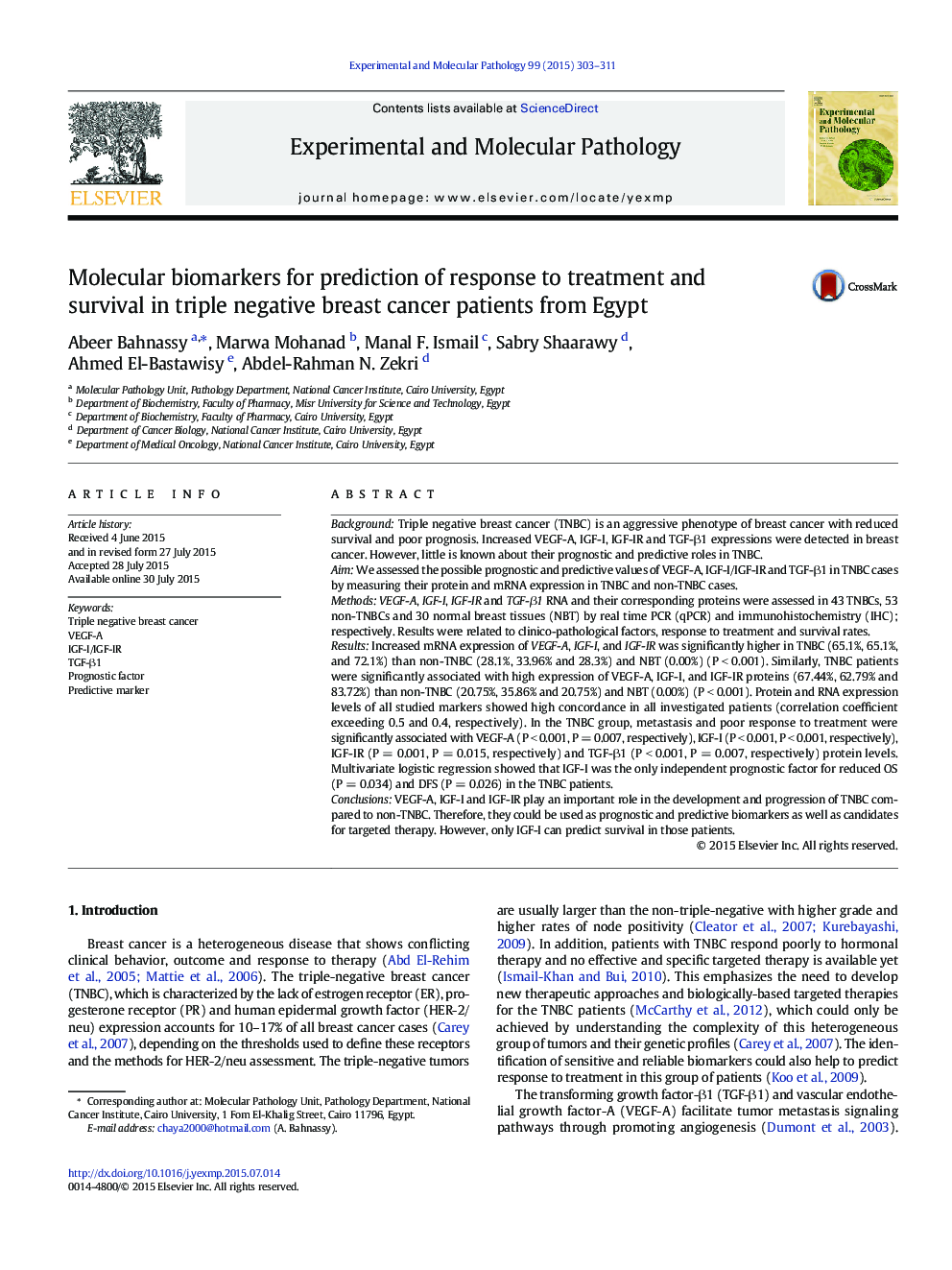| کد مقاله | کد نشریه | سال انتشار | مقاله انگلیسی | نسخه تمام متن |
|---|---|---|---|---|
| 2775026 | 1152305 | 2015 | 9 صفحه PDF | دانلود رایگان |
BackgroundTriple negative breast cancer (TNBC) is an aggressive phenotype of breast cancer with reduced survival and poor prognosis. Increased VEGF-A, IGF-I, IGF-IR and TGF-β1 expressions were detected in breast cancer. However, little is known about their prognostic and predictive roles in TNBC.AimWe assessed the possible prognostic and predictive values of VEGF-A, IGF-I/IGF-IR and TGF-β1 in TNBC cases by measuring their protein and mRNA expression in TNBC and non-TNBC cases.MethodsVEGF-A, IGF-I, IGF-IR and TGF-β1 RNA and their corresponding proteins were assessed in 43 TNBCs, 53 non-TNBCs and 30 normal breast tissues (NBT) by real time PCR (qPCR) and immunohistochemistry (IHC); respectively. Results were related to clinico-pathological factors, response to treatment and survival rates.ResultsIncreased mRNA expression of VEGF-A, IGF-I, and IGF-IR was significantly higher in TNBC (65.1%, 65.1%, and 72.1%) than non-TNBC (28.1%, 33.96% and 28.3%) and NBT (0.00%) (P < 0.001). Similarly, TNBC patients were significantly associated with high expression of VEGF-A, IGF-I, and IGF-IR proteins (67.44%, 62.79% and 83.72%) than non-TNBC (20.75%, 35.86% and 20.75%) and NBT (0.00%) (P < 0.001). Protein and RNA expression levels of all studied markers showed high concordance in all investigated patients (correlation coefficient exceeding 0.5 and 0.4, respectively). In the TNBC group, metastasis and poor response to treatment were significantly associated with VEGF-A (P < 0.001, P = 0.007, respectively), IGF-I (P < 0.001, P < 0.001, respectively), IGF-IR (P = 0.001, P = 0.015, respectively) and TGF-β1 (P < 0.001, P = 0.007, respectively) protein levels. Multivariate logistic regression showed that IGF-I was the only independent prognostic factor for reduced OS (P = 0.034) and DFS (P = 0.026) in the TNBC patients.ConclusionsVEGF-A, IGF-I and IGF-IR play an important role in the development and progression of TNBC compared to non-TNBC. Therefore, they could be used as prognostic and predictive biomarkers as well as candidates for targeted therapy. However, only IGF-I can predict survival in those patients.
Journal: Experimental and Molecular Pathology - Volume 99, Issue 2, October 2015, Pages 303–311
